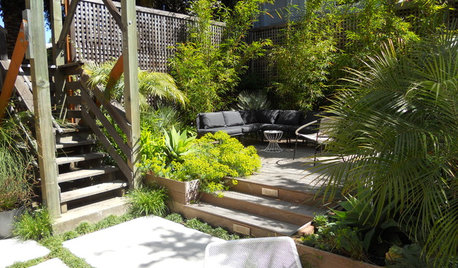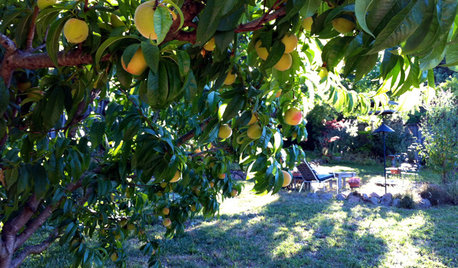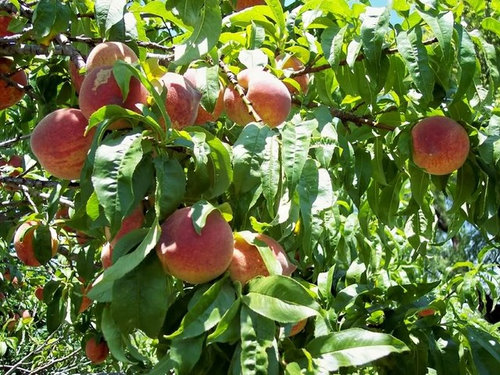Peach pits are all cracked open? (Picture)
bo_berrin
16 years ago
Related Stories

CONCRETEWhy Concrete Wants to Crack
We look at the reasons concrete has a tendency to crack — and what you can do to help control it
Full Story
PATIOSPatio Details: Good-bye Cracked Concrete, Hello Lush Garden
A San Francisco couple replace an old parking space with a barefoot-friendly outdoor retreat for eating, entertaining and play
Full Story
EDIBLE GARDENSHow to Grow Your Own Peaches and Nectarines
Make gardening a little sweeter with these juicy fruits, which you can eat after plucking or preserve for later
Full Story
REMODELING GUIDES5 Innovative Wood Floors
Natural Forms? Wine Barrels? Peach Pits? Take a Look at Some New Ideas for a Warm Wood Floor
Full Story
HOUZZ TOURSHouzz Tour: Georgia Peach Grows California Roots
Southern Glamour and Bay Views Combine in Lush San Francisco Home
Full Story
REMODELING GUIDESLinoleum, the All-Purpose Flooring Wonder
Dashing in a rainbow of colors, able to be cleaned with ease and courteous to budgets everywhere, linoleum is a super choice for floors
Full Story
TRANSITIONAL HOMESHouzz Tour: Part Traditional, Part Modern and All Family Friendly
With clean lines, vintage touches and durable surfaces everywhere, this Los Angeles home balances tastes and needs beautifully
Full Story
MOVINGThe All-in-One-Place Guide to Selling Your Home and Moving
Stay organized with this advice on what to do when you change homes
Full Story
HOMES AROUND THE WORLDStorybook Cottage Gets an All-Glass Kitchen
A showstopping addition to a traditional thatched cottage houses a contemporary kitchen
Full Story
KITCHEN DESIGNPopular Cabinet Door Styles for Kitchens of All Kinds
Let our mini guide help you choose the right kitchen door style
Full Story






readinglady
bo_berrinOriginal Author
Related Professionals
Holly Springs Landscape Architects & Landscape Designers · North New Hyde Park Landscape Architects & Landscape Designers · Palm Springs Landscape Architects & Landscape Designers · Port Royal Landscape Architects & Landscape Designers · Deer Park Landscape Contractors · Ellensburg Landscape Contractors · Lemoore Landscape Contractors · Mendota Heights Landscape Contractors · Oak Forest Landscape Contractors · Selden Landscape Contractors · Wells Landscape Contractors · Crowley Landscape Contractors · Milton Roofing & Gutters · Marietta Roofing & Gutters · Winston-Salem Driveway Installation & Maintenancebo_berrinOriginal Author
readinglady
bo_berrinOriginal Author
readinglady
bo_berrinOriginal Author
dgkritch
readinglady
ksrogers